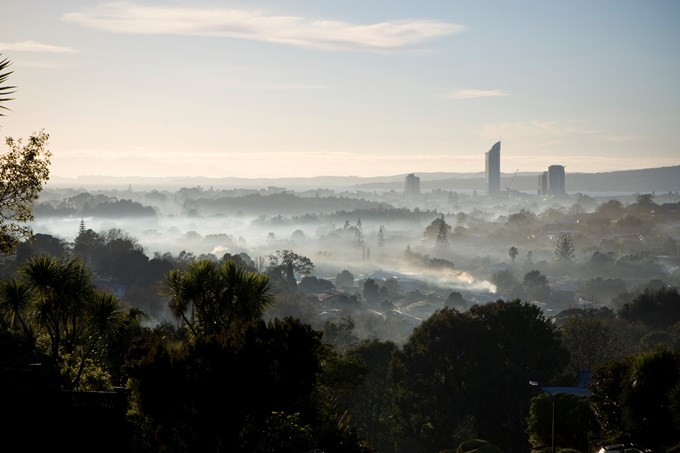Auckland Council’s latest State of Environment report has now been released, and it shows some positive results for the region’s air quality.
These good results do come with a warning however, as population growth is likely to have a negative impact in years to come.
The main sources of air pollution in Auckland are transport, domestic heating and industry. Natural events also have an impact, such as volcanic eruptions and even bushfires in Australia.

Air quality has improved greatly in the past decade as a result of effective air quality management, including removing lead from petrol and lowering its benzene levels, increasing public transport options and use, and traffic management planning in the CBD.
But population increase and the associated needs for transport and heating could see air quality trends reversed. For example, motor vehicles - especially those using diesel fuel - are one of the key sources all year round of particulate matter (PM2.5, PM10) and nitrogen dioxide (NO2). In winter, the solid fuels many of us use to heat our homes are the dominant source.
Statistics New Zealand’s projections suggest Auckland’s population could reach 2.01 million by 2033, an increase of 517,300 over the next 20 years. And the number of diesel vehicles in Auckland is on the rise as the population increases.

So although levels of particulate matter and nitrogen dioxide have decreased in the region, we are still in danger of exceeding air quality guidelines and standards as vehicle numbers increase.
Breathing clean air is critical to people’s health, and breaking our car habit remains one of the keys to keeping both ourselves and our environment healthy.
What can you do to help?
- Drive your car less.
- Investigate alternative sources of home heating and consider insulation.
- Consider leaving the car at home and walk or cycle.
- Take the bus, train or ferry where possible.
- Keep your car tuned and running smoothly.
- See how your car compares at rightcar.govt.nz.
- Consider carpooling to work.
Read the full report here: The Health of Auckland's Natural Environment in 2015.


